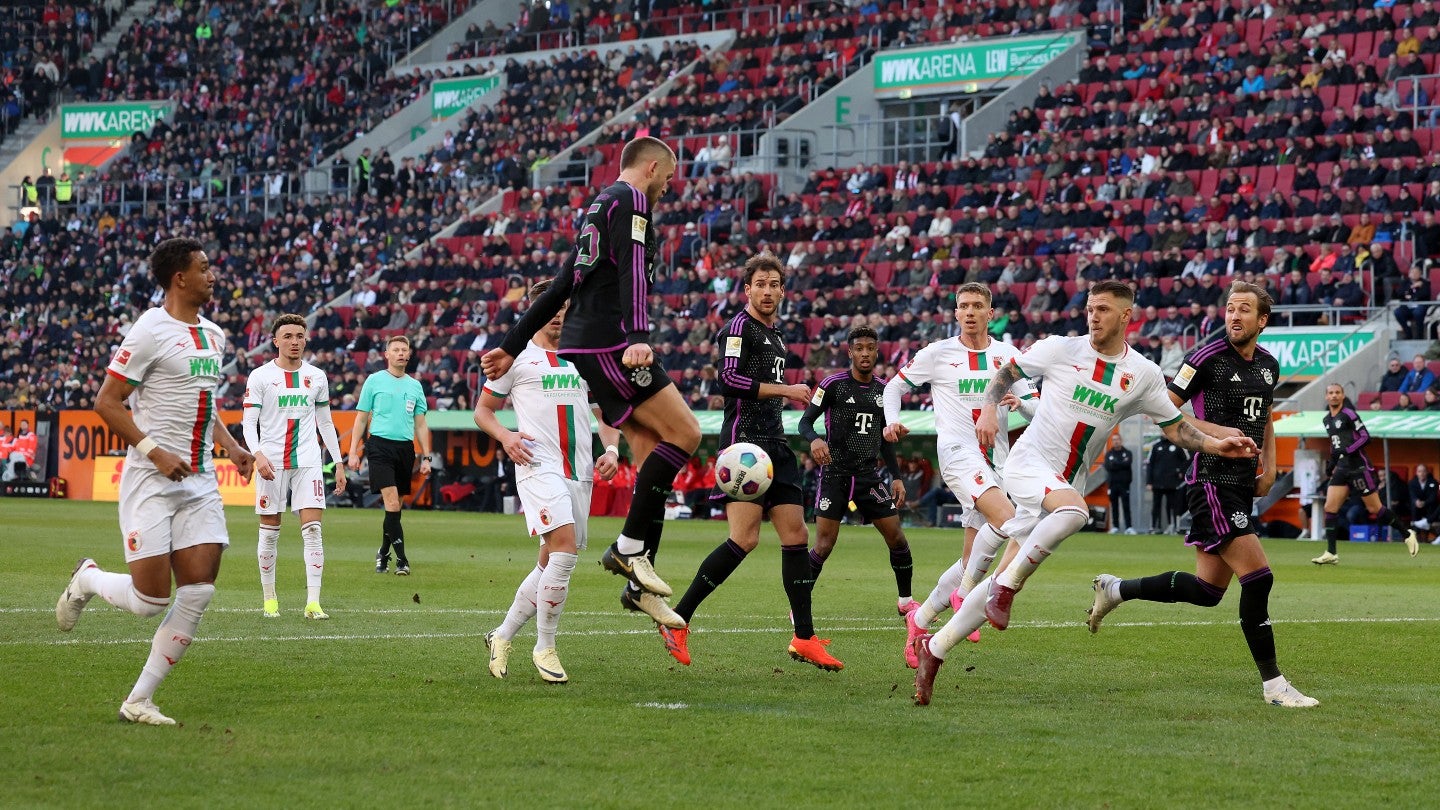The German Federal Cartel Office (Bundeskartellamt) has scrapped a ban on domestic media rights to the country’s top-tier men’s Bundesliga soccer league being sold exclusively to one buyer.
The Bundesliga has detailed this change - the ‘no single-buyer’ rule has been in place for the best part of a decade - in publishing the details of its domestic media rights tender for the 2025-26 to 2028-29 cycle.
The tender covers - aside from Germany - the markets of Austria, Switzerland, Liechtenstein, Luxembourg, East Belgium, and South Tyrol, and includes the top-tier Bundesliga, second-tier Bundesliga 2, and the German Supercup, and features seven live and eight highlights packages.
The rights auction is at this point set to begin in mid-April, with broadcasters to receive the necessary tender documents in mid-February.
A decision as to the allocation of these rights “is expected to be made in the second quarter of 2024,” the league’s hierarchy has previously said.
The no single-buyer rule has been applied in Germany since the 2016 Bundesliga domestic rights tender, with the aim being to make the competition attractive to a range of different broadcasters by reducing the possibility of exclusivity. During recent cycles, rights are legally required to be split between media partners, but that will now change.
The Bundeskartellamt’s president, Andreas Mundt, said: “In recent years, the market for live coverage of football matches has become much more dynamic due to the activities of companies such as DAZN, RTL and also Amazon. Most importantly, all providers now offer attractive internet-based broadcasting services as well.
“Encouraging competition for innovation in broadcasting the content was a particularly important goal of the no-single-buyer rule. This means that we can now accept DFL’s suggestion to waive the general rule that no single company may acquire the exclusive live broadcasting rights to Bundesliga matches in the upcoming auction.”
Previously, the no single-buyer rule has also been applied for sporting tenders in markets such as the UK and Italy.
In terms of the specific tender packages on offer, four of the live rights packages (which can now be sold to a single buyer, although this is not compulsory) are for pay-TV, two are technology-neutral covering the Bundesliga 2, and one is for free-to-air (FTA) rights to at least nine live games across the whole portfolio (from both leagues, the Supercup, and the post-season relegation playoffs).
The DFL (the league structure in charge of the Bundesliga and Bundesliga 2) set the tender process in motion in mid-January by asking interested firms to register.
The rights lots will in total cover 617 matches per season, while there are also three audio rights packages on offer, as well as one covering ‘digital out of home.’
There are several notable changes from the current 2021-22 to 2024-25 rights cycle, during which domestic live rights to Bundesliga action are shared between pay-TV giant Sky Deutschland, streaming heavyweight DAZN, ProSiebenSat.1, and Sport1. These deals are worth, in total, around €1.1 billion ($1.2bn) annually.
Firstly, one of the pay-TV packages now includes the rights to cover all individual Bundesliga games on Friday and Saturday - previously, this covered fixtures on Friday and Sunday.
The quartet of pay-TV packages covers the ‘Konferenz’ of the matches played at the same time on Saturday afternoons (package A), all individual games on Fridays and Saturday afternoons (package B), the premier match of each weekend on Saturday evening (package C), and the individual fixtures on Sunday (package D).
In addition, the successful bidders for the pay-TV rights will “have more opportunities to broadcast a certain number of matches on a free-to-air basis,” either through their platforms or in cooperation with other broadcasters and streaming services.
As well as this, new highlights rights packages have also been created, that can be used as early as Monday following the weekend’s action. One of these will focus on digital platforms, including the broadcasting of 90-second clips.
This is added onto the pay-TV rights for highlight clips following the final whistle from all matches, while the DFL has also said that there may be opportunities during the next cycle for social media clips to be posted during games.
The match timings, meanwhile, will stay almost entirely the same as during the current cycle, with the only minor change being a slight increase in the number of games taking place on Sunday at 7:30pm.
The DFL has said in assessing the tender that it is “relying on a tried and trusted match schedule structure, while at the same time taking account of changes in media usage behavior through innovations in the rights packages.”
The body has added that it will regularly organize “special productions” with its chosen partners, including broadcasts specifically for children, and that its chosen partners will also have a specific innovation budget at their disposal.
In addition, “live productions in 9:16 format optimized for smartphones are also envisaged,” the league has stated.









